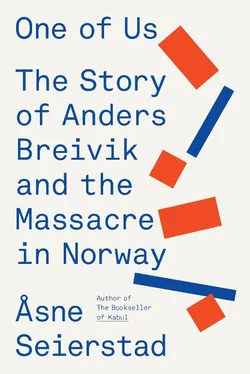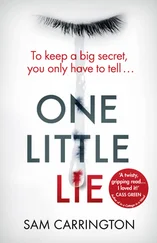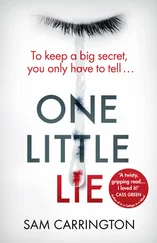By naming the campaign of extermination after a sura of the Qur’an, the Iraqi government sought to legitimise its executions as a war against unbelievers. The Kurdish mosques in areas selected by the Prohibited Villages Committee of Central Security were razed to the ground by the army’s corps of engineers. First with dynamite, then with bulldozers. A decree from the highest level ordained that no settlement was to be spared. After the raids, the destruction was inspected by helicopter, and if as much as a single building remained standing the area commander was held to account.
One lovely spring morning, the scent of flowers and sweet apples came wafting across the rooftops in a village high up in the Kurdish mountains. Then people’s eyes began to water and their skin to burn. The babies died first, then the toddlers, then the old people, and finally even the strong. Those who survived were left blind or with other serious after-effects.
In the next phase, village after village was bombed with mustard gas, sarin and other nerve agents. This culminated in the attack on Halabja in March 1988, which killed five thousand people, and left thousands more scarred for life.
* * *
In the midst of all this there lived a young Kurdish man by the name of Mustafa. He was a trained engineer and had served in the Iraqi army, repairing tanks and military equipment in the south of the country. Mustafa felt himself to be a slave of the system, trapped and under surveillance. The Iraqi intelligence services, trained by the East German Stasi, had ears and eyes everywhere.
After his military service, Mustafa found work as an engineer at the water and sewage works in the Kurdish city of Erbil, and was there when al-Anfal started. Frightened voices whispered stories about the mass graves, the blue-black faces, the desiccated eyes. Stories that were dangerous to repeat.
Working in the accounts office of the waterworks was a beautiful, elegant woman with black curls, six years younger than Mustafa. She had a laugh that came floating out of the door and along the corridor as he passed. Her family had fled from Kirkuk, and she was obliged to abandon her university course when al-Anfal began.
Mustafa’s first ploy was to make sure the girl got to know his sister. Then, when the entire workforce was sent by a state committee to make an inventory of a warehouse, he saw to it that he and she were standing beside each other, sorting goods.
She was called Bayan. And she was everything he wanted.
A few days after that, he got his sister to ask her: ‘Do you want to marry my brother?’
Bayan did.
* * *
It was snowing when they got married in February 1992. That meant good fortune!
But after the Iraqi army moved out of the town, conflicts erupted between the various Kurdish factions. There was shooting on the streets, prices went through the roof and the Iraqi dinar plummeted. Buying a simple meal took plastic bags full of banknotes.
It also snowed on one of the last days of December that year, as Mustafa drove his pregnant wife through the potholed streets of Erbil at top speed. Bayan groaned with pain every time they hit a bump, her contractions coming thick and fast. An icy wind blew in with them as Mustafa opened the main door of the hospital. Even inside, the temperature was only just above freezing; there was no electricity and all the paraffin was gone. Once Bayan was safely in bed, Mustafa sent word to their friends and relations, who collected enough fuel to get the hospital generator going.
The steady drone of the motor was soon providing an accompaniment to the cries of the women in labour.
Snow for their wedding in February and on the day of the birth. Doubly good fortune, thought Mustafa as he waited in a corridor reeking of paraffin. This must be a child born under a lucky star.
Three women each gave birth to a daughter in the labour ward at Erbil that night.
Two of them were given the name Befrin, which means Snow White, after the beautiful snow flurries that were filling the air.
Bayan put her daughter to her breast. No, not Snow White, she thought. You’re not a Snow White.
‘Let’s call her Maria,’ suggested Mustafa.
‘No, I know a sick old lady called that. She can’t be named after a dying woman,’ said Bayan.
‘You choose then,’ smiled Mustafa.
The brand-new mother looked down at her firstborn child. The baby had big, brown eyes and her head was wreathed in thick, dark hair. You look like a princess, thought Bayan.
A name that meant princess came into her mind.
‘Bano,’ she said. ‘We’ll call her Bano.’
I am a father of two
You are a mother of two
Let hurrahs ring round the Earth
For they are our masterpiece!
Einar Skjæraasen, ‘Onga våre’
The month the Soviet Union collapsed, there were blue stripes in the pregnancy test.
At last!
It had been quite a wait. Tone and Gunnar had both qualified as teachers. They had moved north, as far north as they could get, to Kirkenes, right up by the Norwegian–Soviet border. When they went camping and fishing round the Pasvik valley, they could see over to the formerly mighty neighbour, which was now on the verge of collapse. The same forest on both sides, but a steady and advanced welfare state on one side, and social and industrial decline in a ticking environmental nightmare on the other.
They had moved up north because special rates on paying down student loans were available if you took a job in Finnmark, Norway’s northernmost county. Tone got a job at the upper secondary school in the former mining town and Gunnar taught at the secondary school, where he soon became the teachers’ union representative.
As the pregnancy test showed its blue stripes in December 1991, Gorbachev’s empire was being broken up into fifteen republics. Tone and Gunnar decided to celebrate the pregnancy with a trip to the other side, to the nearby city of Murmansk, where people were still living in some sort of equality of poverty.
The people of northern Norway had a lot to thank the Soviets for. Hitler’s army torched every building in Kirkenes and other towns and villages in Finnmark before it was sent south by Stalin’s troops in 1944. People up here had not forgotten it was the Red Army that liberated them. But since the war there had been precious little contact between the two peoples.
Now, the parents-to-be stood on deck in the cold on their way into the huge city and saw the vast collection of nuclear submarines in the ships’ graveyard stretching halfway along the fjord.
Tone shivered. What if the radiation damaged the baby? A new life, vulnerable and longed for. She would have to be more careful now.
* * *
The snow melted, spring came, and spring turned into summer. A summer of sorts, at any rate, with average temperatures at midsummer of six to seven degrees centigrade, which suited a mother-to-be who was growing larger and feeling hotter all the time.
It was the end of July when the contractions started.
The birth at Kirkenes hospital was long and hard. It took all the long, light night. Towards morning the baby finally arrived, big and bonny. They would call him Simon, Tone decided.
When a little brother put in an appearance eighteen months later, Simon treated him like a teddy bear. He would lie beside the baby tickling him, especially his earlobes. If Simon was going out, he would throw his toys into the playpen so his brother wouldn’t feel lonely.
It was little Håvard who turned out to be the showman of the family. He was especially keen on singing. He often put on concerts at home, with the rest of the family as his audience.
Читать дальше












